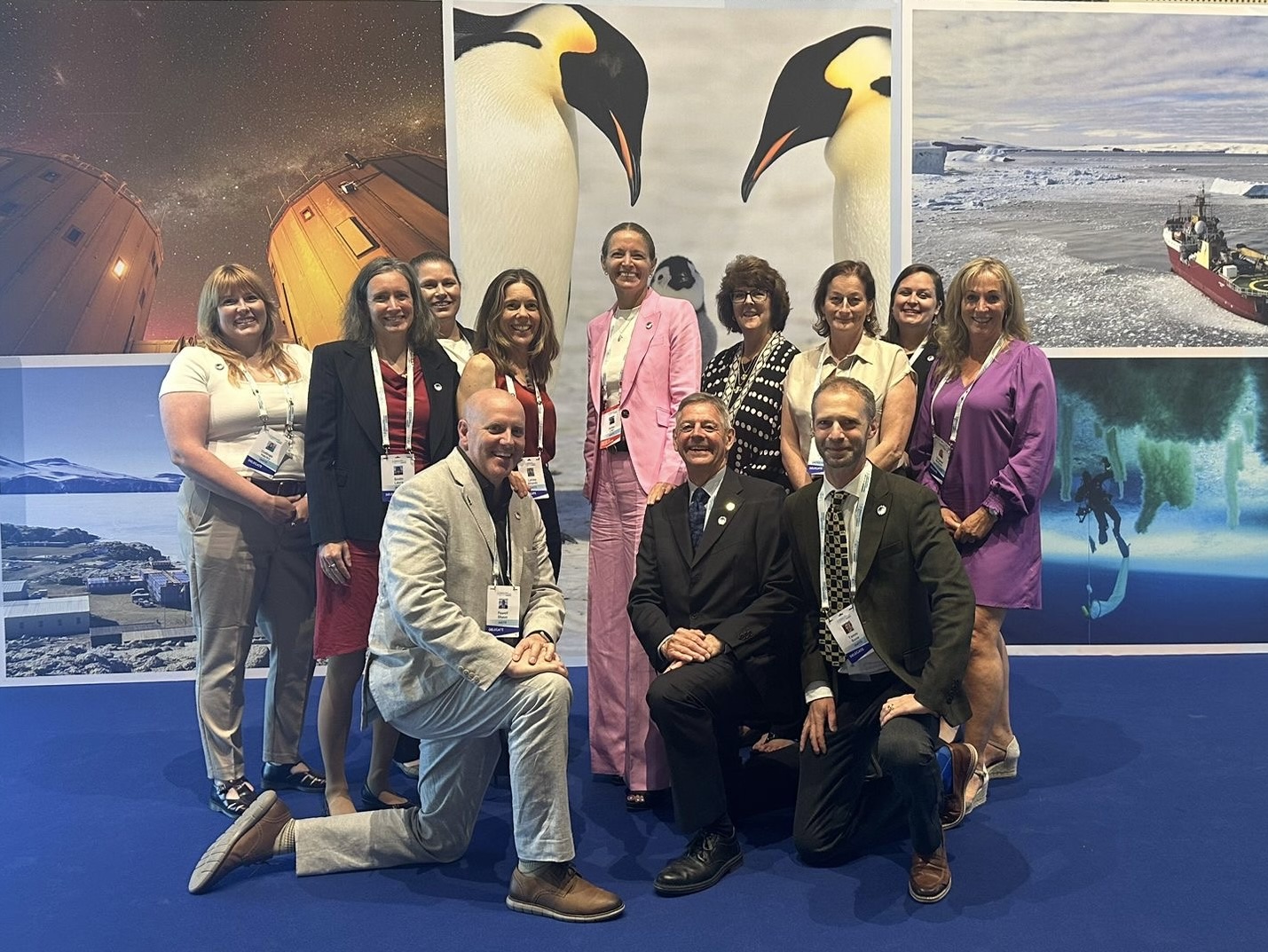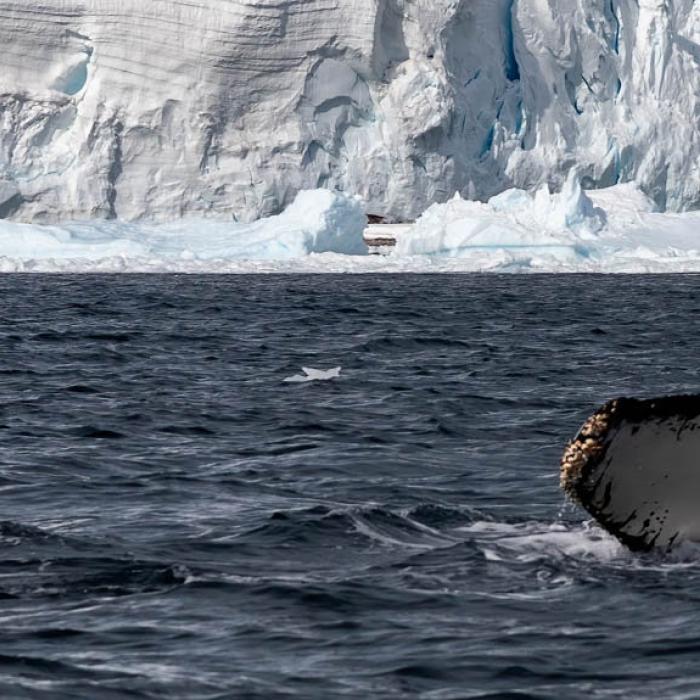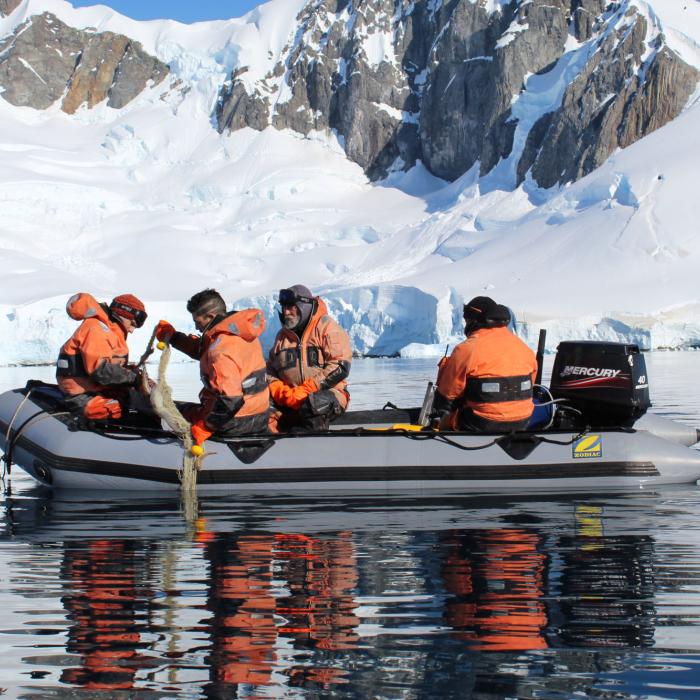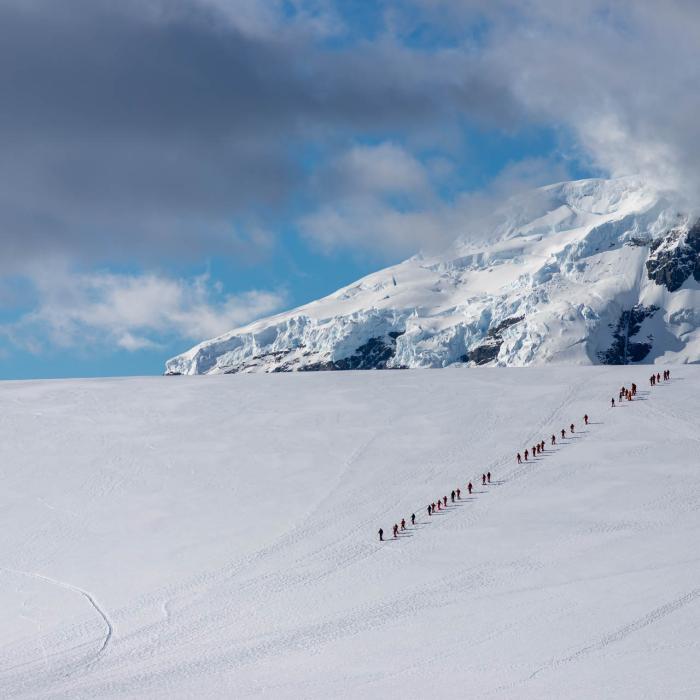
Tourism, Policy & The Path Forward - Reflections on the 47th Antarctic Treaty Consultative Meeting
The annual Antarctic Treaty Consultative Meeting serves as a vital platform for shaping policy, addressing emerging challenges, and fostering international cooperation in the planet’s most remote region. IAATO Executive Director and head of delegation, Lisa Kelley, shares her insights and reflections on this year’s meeting.
IAATO delegates are returning from Milan, Italy, this week, where this year’s Antarctic Treaty Consultative Meeting (ATCM) has once again highlighted the governance of Antarctic tourism. The discussions among Antarctic Treaty Consultative Parties (ATCPs) reaffirm the global community’s shared responsibility to safeguard the continent’s ecosystems - a goal that IAATO and its members have supported for over three decades.

At the same time, recent academic discussions have raised thoughtful questions about the future of Antarctic expedition travel. Topics such as cumulative environmental impacts, the scale of human activity, and the adequacy of current regulatory frameworks have rightly sparked discussion among scientists, policymakers, and the public alike. IAATO welcomes this scrutiny, as it reflects a shared desire to ensure Antarctica remains protected for generations to come.
IAATO operates within the framework of the Antarctic Treaty System (ATS), specifically the Protocol on Environmental Protection, and as an invited expert to ATCM annually, plays an active role in supporting policy development by providing data, operational insights, and logistical expertise. While IAATO does not have regulatory authority and cannot set visitor caps, we contribute information constructively to the work of the ATCPs, who hold the legal authority to make such decisions.
As an organisation founded on a desire to advocate for and promote the practice of safe and environmentally responsible private sector tourism in Antarctica, we are proud to support the development of the ATS Tourism Framework. This framework aims to address both the growth and diversification of tourism activities in Antarctica through effective regulation, reflecting the close collaboration of international stakeholders committed to protecting the region.
Our members have long implemented voluntary measures that reflect international conservation principles and often exceed minimum regulatory requirements, from enforcing minimum approach distances and reinforcing wildlife awareness through staff protocols and visitor briefings, to preventing the introduction of non-native species through rigorous cleaning and inspection protocols, as well as limiting vessel speeds in whale-rich areas to reduce the risk of ship strikes.
These measures reflect a culture of continuous evolution and precaution, aligned with the environmental principles of the Treaty System.
IAATO members also play a role in supporting scientific research and public education. From providing logistical support to contributing to wildlife sighting databases to funding and participating in collaborative research, members serve to amplify conservation awareness among a global audience.
Each visit to Antarctica presents an opportunity to educate, inspire, and foster environmental advocacy, demonstrating that tourism, when carefully managed, can be part of the solution.
Looking ahead, IAATO remains committed to supporting the Antarctic Treaty Parties in developing policies that reflect both data evidence and on-the-ground realities. We agree with calls for vigilance and adaptation, and we stand ready to help ensure Antarctica remains a place of peace, science, and natural beauty.
We believe that responsible tourism, grounded in collaboration and conservation, can play a constructive role in Antarctica’s future. We are honoured to support continued dialogue with researchers, policymakers, and environmental advocates as we work together to protect this extraordinary region.

About the author: Lisa Kelley, IAATO Executive Director
A committed member of the polar expedition industry since 2000, Lisa Kelley has worked as an undersea specialist, logistics coordinator, dive master and expedition leader in both the Arctic and the Antarctic. She began contributing to IAATO’s mission and vision in 2004 when she first represented operators at the association’s annual meeting. She has also served as station manager at Palmer Station for the United States Antarctic Program during the 2010 austral winter.
Lisa joined IAATO full-time in 2016, taking responsibility for the field operations aspect of the organisation and developing industry best practices and guidelines for field operations. Since then, she has led IAATO Member Operations and Government Affairs, including heading up IAATO’s delegation at the annual Antarctic Treaty Consultative Meeting (ATCM). She became Executive Director in 2024.
Lisa's extensive experience diving "the Ice" led to the publication of Below Freezing: The Antarctic Dive Guide in 2006, now in its third edition. Her underwater experience and exploration of the Polar Regions led to her acceptance into the Explorers Club.


